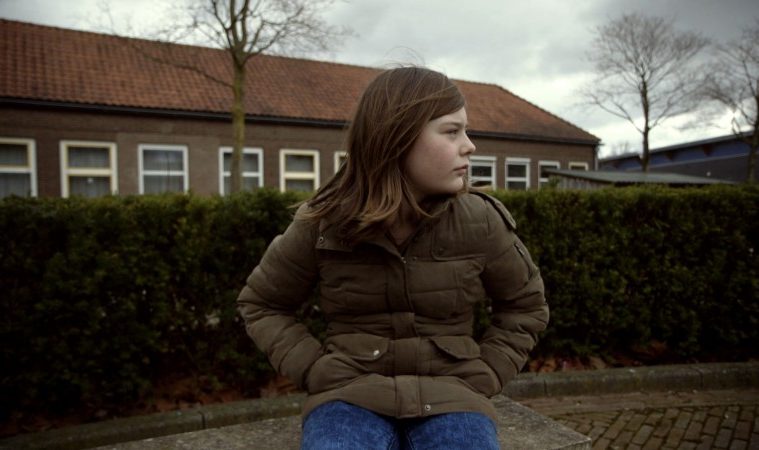Unfolding like a document for social workers and counselors training for work in the field, Maasja Ooms’ Alicia offers up no easy solutions for a child caught in the system. Observing a young girl from age nine to thirteen, her life is captured with great tenderness and immediacy as Alicia’s problems start to become unmanageable even for the trained professionals that care for her.
Cold black and white inter-titles between gaps in filming tell what’s transpired in the form of technical reports on Alicia’s psychological condition as she’s bounced between orphanage, foster homes, and eventually, institutions. We witness her transformation from a rambunctious nine-year-old into a potentially dangerous teenager whose behavioral and psychological problems lead to a violent turn. What starts as running around an orphanage evolves into kicking caretakers and running away–in one instance Alicia is gone for over 24 hours.

Born to a 17-year-old mother who herself has been institutionalized and is under the supervision of the Youth Care Office, Alicia is removed from their home and placed with a foster family upon her birth. At age five she’s placed back into the system after her foster mother unexpectedly becomes a single mother. In a particularly heartbreaking passage, a caretaker in her orphanage tells her early on in the process that it will not be easy to find a foster family for her.
Given unprecedented access to Alicia’s story, Maasja Ooms’ third feature oscillates between a technical document that no doubt will have value for child psychologists and direct cinema as Alicia interacts with social workers and her mother, who later becomes a more active participant in her care. Growing concerned for her safety her mother, who also has a history of being institutionalized, arrives at a disagreement with a staff about the best course of treatment. Her mother encourages the staff to move Alicia to a maximum security facility.

With a focus largely on Alicia’s life in the system over the three-plus years Ooms films with her, we find a disconnection from the filmmaker. She is not performing for the camera even in her most rambunctious of moments where we see her violent tendencies surface: a visit with her mother in which she throws stuffed animals around an office and refuses to sit still.
The director’s thesis, I’ve learned from the press notes, states she had set out to make a film about “our need for love.” I’m not sure the film has successfully achieved this, keeping Alicia at a professional distance. It’s questionable, from the film, who has granted Ooms’ access to this story: the state or Alicia’s mother.
In spite of its rough edges and flaws, Alicia is an occasionally poignant document that either shows a system attempting to correct for a breakdown (removing Alicia in the first place from her parents) or a system working as intended. Either way, despite the focus on the Youth Care System offered in the Netherlands, the film certainly has relevance in the wake of the Trump administration’s cruel child separation policy. It’s a shame after a year on the festival circuit, it’s just arriving to our shores now.
Alicia will have its North American premiere at Doc NYC on November 14.

